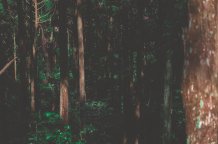
Image courtesy of Henry & Co.
Long-forgotten folklore of how to summon fairies set to be revealed
The ethereal and mysterious methods that people of bygone times tried to summon fairies to help navigate the trials and tribulations of day-to-day life are set to be uncovered.
Researchers from the University of Exeter have launched a new study to examine collections of 15th-17th century spell books and grimoires that gave instructions of how to summon and conjure fairies, demons and other spirits.
This period, starting in the late medieval times, saw the writing of many books giving instructions for how to perform sorcery and necromancy, and fairies played an important role in these.
Amongst the common theories were that they were demoted angels, spirits of the dead, prehistoric human precursors, and minor deities in pagan beliefs.
Fairies were not always considered as virtuous, particularly as Puritanism grew after the Reformation in the sixteenth century. A popular phenomenon was the will-o'-the-wisp, a fairy that lead travellers astray at night. As such, various spell books were written to conjure fairies, demons and other spirits for noble and nefarious purposes.
Now, Samuel Gillis Hogan will begin trawling through ancient manuscripts in many of England's libraries to find evidence and records of how people thought they could harness the power of fairies over the 300-year period, and what influence this had on people’s lives and culture.
“Fairies were thought of as wonderous and beautiful, but mostly dangerous. But people wanted to summon them and harness that power for their own gain. For example, fairies were often asked to teach how to heal people,” explained Samuel.
Samuel, who is starting a PhD, will move to Canada to join a team of historians at the University of Exeter who are already investigating the history of magic.
"The study of the history of magic is a rich vein for analysis and insight into the history of thought, religion, medicine, science, and philosophy.
“It shows much about beliefs at the time. By fully understanding these practices, we can often reconstruct how it was perfectly rational given contemporary beliefs. It’s easy to look down our noses at past (or present) cultures and dismiss them as 'backwards' or 'primitive', but intimately understanding these very different worldviews emphasises that our own is simply one among many!”
Samuel will be supervised by two historians, Professors Catherine Rider and Jonathan Barry. Professor Rider, author of Magic and Religion in Medieval England, focuses on the history of magic and the church's attitude to magic. Professor Barry has authored two books on related topics: Witchcraft and Demonology in South-West England 1640-1789 (2012) and Raising Spirits (2013). His research includes study on medieval provincial society and culture in England, and religious and medical history, including witchcraft.
"Exeter boasts a growing group of scholars interested in magic, including scholars in English, Drama, the Institute of Arab and Islamic Studies and Theology", explained Professor Rider.
"Sam joins us with a strong pedigree, having focused on the field since through his graduate degree, and worked with a prominent Canadian scholar in the field during his Master's".
His PhD will be funded by a Rothermere fellowship which supports students who have previously studied at the Memorial University of Newfoundland to study in the UK.
Date: 11 September 2018
